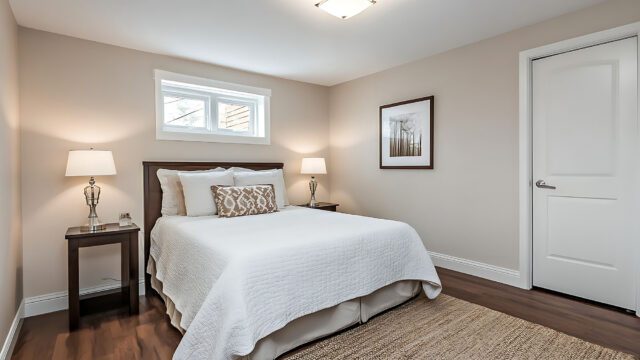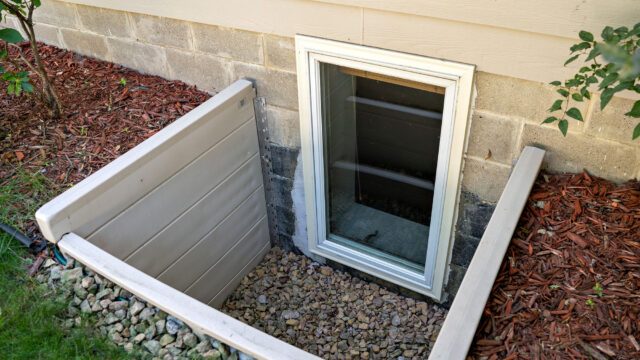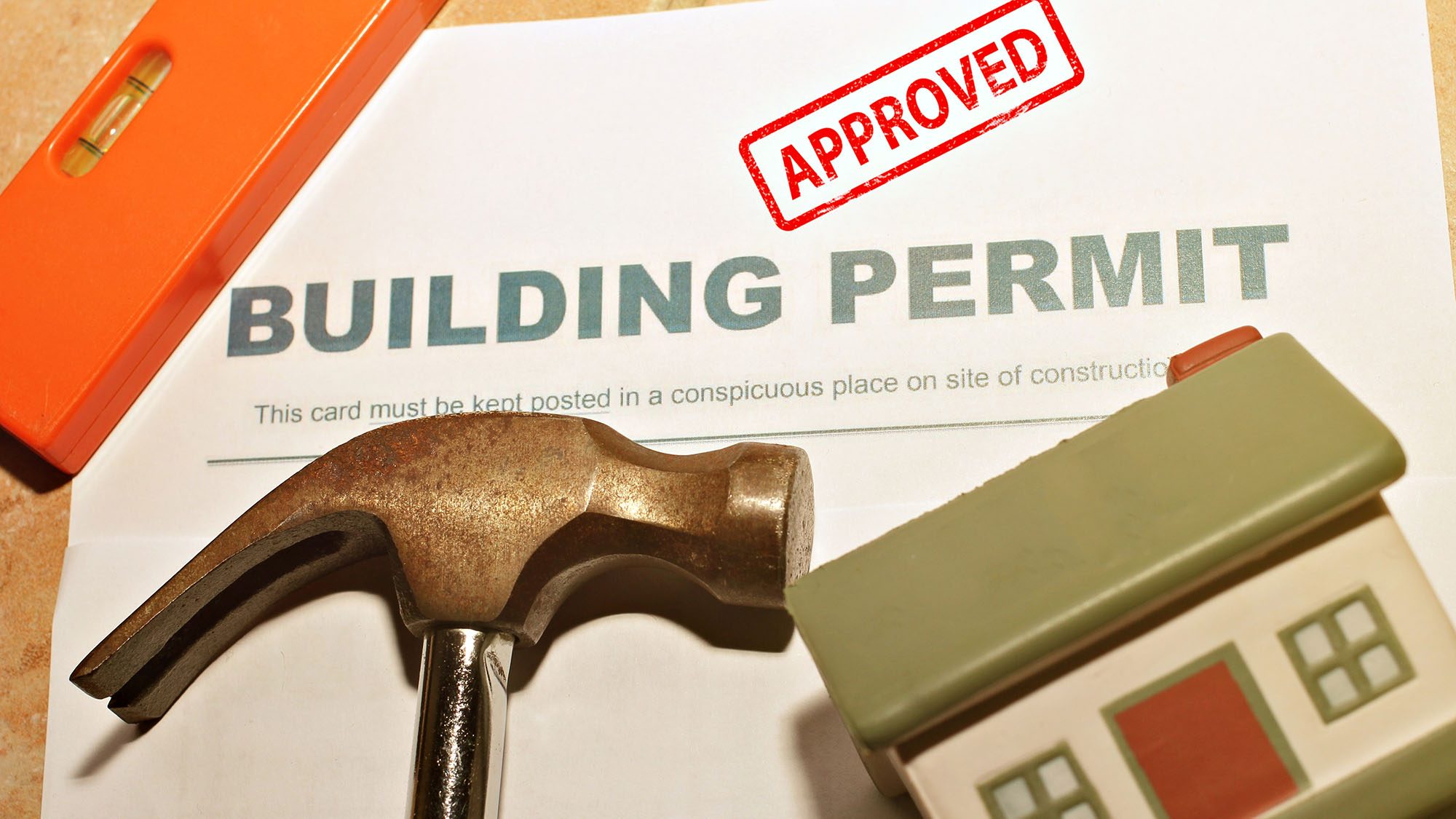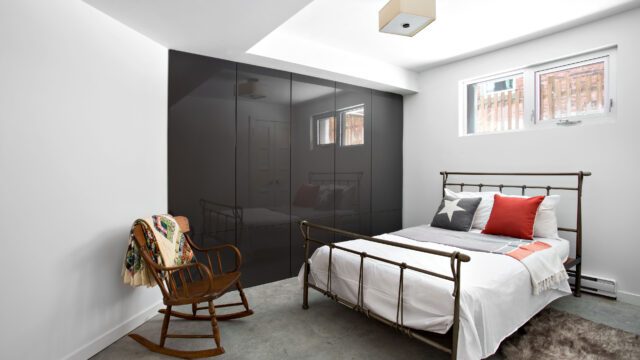
To Building Codes for Basement Bedrooms in the GTA

As a licensed construction and renovation company, UPPERAVENUE Construction Inc. has extensive knowledge about making changes to basements in order to make them usable and beautiful spaces. Often, homeowners are looking to add an additional bedroom. There are essential building codes and regulations for creating safe and legal basement bedrooms in the Greater Toronto Area and UPPERAVENUE Construction Inc. has the knowledge and expertise to navigate the rules and regulations of the building codes.
Understanding Building Codes and Regulations for Basement Bedrooms in the GTA
1. Overview of Building Codes in the GTA
Building codes play a crucial role in ensuring the safety and livability of basement bedrooms in the Greater Toronto Area (GTA). These regulations, primarily governed by the Ontario Building Code (OBC) and Ontario Fire Code, mandate that any renovations meet specific safety and structural integrity standards. For instance, a legal basement apartment must provide adequate natural light and ventilation, ensuring a habitable environment for residents. Furthermore, compliance with plumbing codes is essential; legal basement units must include essential bathroom fixtures, a functioning kitchen sink, and laundry access to meet basic living standards.
Homeowners are also required to follow guidelines set forth by the Electrical Safety Authority (ESA) for any electrical work conducted during renovations. This compliance is vital not only for safety but also for reducing potential legal liabilities associated with improper installations. In essence, understanding and adhering to these building codes is crucial for anyone looking to convert a basement into a safe and legal living space.
For over fifteen years, UPPERAVENUE Construction Inc, has been dealing with these building codes, permits and regulations on behalf of homeowners to ensure that their basement renovation meets all the standards required.

2. Minimum Requirements for Basement Bedrooms
When it comes to the minimum requirements for legal basement bedrooms in the GTA, specific dimensional criteria must be met. The Ontario Building Code states that the minimum ceiling height for a legal basement bedroom is 6 feet 5 inches (1.95 meters). Legal basement requirements in Ontario must comply with the Ontario Building Code (OBC) to ensure safety and livability. Additionally, each bedroom must have at least one openable egress window, with a minimum area of 0.35 square meters of egress requirements for basement renovations are critical for safety, legal compliance, and enhancing living spaces in the Greater Toronto Area. This requirement not only ensures compliance but also enhances safety, allowing for proper ventilation and natural light.
Egress windows must meet specific dimensions: no less than 15 inches in height and width, with a sill height that does not exceed 1,000 mm. Moreover, at least 5% of the total floor area of the basement must be dedicated to natural light, necessitating appropriately sized windows. Furthermore, each basement bedroom is required to have a separate heating and ventilation system to maintain comfort and air quality, along with smoke alarms installed in each sleeping area and hallway for safety compliance.
3. Egress and Safety Regulations
Egress windows serve as vital exit points in emergencies, ensuring safe evacuation from basement bedrooms. The Ontario Building Code mandates that every basement bedroom must have at least one openable egress window, which is critical not just for compliance but for the safety of occupants. Fire safety measures are also paramount; smoke alarms are required on every floor, including basements, and carbon monoxide detectors must be installed near sleeping areas.
Additionally, fire-rated separations between the basement and main living areas are essential for fire safety. Licensed contractors must install smoke detectors and ensure that all fire safety measures meet the standards set by the Ontario Fire Code. Regular inspections of fire safety equipment are necessary to ensure ongoing compliance and effectiveness in emergency situations. For instance, maintaining egress windows in good condition and ensuring they remain unobstructed is vital for safety during emergencies.

4. Permits and Legal Compliance
Before converting a basement into a legal bedroom, homeowners must obtain the necessary permits, which include building, occupancy, plumbing, and legal basement permit [3]. Registration with the City of Toronto and obtaining a Certificate of Compliance is also essential for those planning to rent out a basement apartment. Failure to comply with these regulations can lead to municipal complaints, fines, or even eviction from the property.
A comprehensive lease agreement is key for landlords, as it sets clear expectations and provides legal protection for both parties involved. Moreover, it’s crucial for landlords to inform their insurance companies about the legal status of the basement apartment to ensure proper coverage. The process of obtaining permits often requires detailed plans and inspections at various stages of construction to confirm adherence to all relevant regulations.

5. Zoning Bylaws and Location Considerations
Zoning By-law 569-2013 is an important regulation that dictates where basement apartments can be legally established in residential zones throughout the GTA. Homeowners must verify zoning compliance before beginning renovations to avoid any legal complications. For instance, homes with separate entrances are more likely to qualify as legal secondary suites, which can significantly impact renovation decisions.
Certain residential zones may impose restrictions on the number of rental units allowed on a property, making it essential for homeowners to consult the City of Toronto’s zoning maps and guidelines to ensure compliance with local regulations. Additionally, as zoning laws can change, keeping abreast of any legislative updates is prudent for homeowners with existing basement apartments to ensure ongoing compliance.

6. Cost and Value of Legal Basement Bedrooms
The financial aspect of legalizing a basement bedroom can vary significantly, typically ranging from $80,000 to $150,000 depending on the extent of necessary renovations. While this might seem like a considerable investment, legal basement apartments can substantially enhance property value and generate rental income. For example, a well-executed basement conversion can yield enough rental income to offset renovation costs within a few years.
However, common pitfalls include commencing renovations without the necessary permits or failing to meet safety codes, which can lead to unexpected expenses. Therefore, hiring qualified professionals is advisable to ensure compliance and reduce the risk of costly mistakes during the renovation process. Additionally, homeowners should budget for inspections and compliance checks throughout the renovation to ensure that all work meets legal standards.
7. Maintenance and Inspection Requirements
Maintaining compliance with building codes and safety regulations is an ongoing responsibility for homeowners with basement bedrooms. Regular maintenance of egress windows is essential to ensure they remain unobstructed and functional. It is crucial for homeowners to implement adequate ventilation systems to maintain air quality and prevent moisture buildup, thereby enhancing the overall living conditions in the basement.
Moreover, periodic inspections of smoke and carbon monoxide detectors are necessary to ensure they comply with safety standards. Homeowners should also conduct routine checks of plumbing and electrical systems to prevent hazards and ensure compliance with the Ontario Building Code. Keeping detailed records of all inspections, repairs, and maintenance activities not only aids in future compliance checks but also enhances the overall safety of the basement living environment. Seasonal maintenance tasks, such as clearing window wells and checking for leaks, can significantly contribute to the functionality and safety of the space.
Conclusion
Legal basement bedrooms carry long-term advantages. By optimizing exiting home spaces, they contribute to allowing homeowners to remain in their home and maximize their property value. UPPERAVENUE Construction Inc. will guarantee your basement bedroom renovation meets all of the GTA criteria – from permits and design. Are you ready to transform your space? Contact us by telephone at 1-647-834-8346 or e-mail us at info@upperavenueconstruction.ca